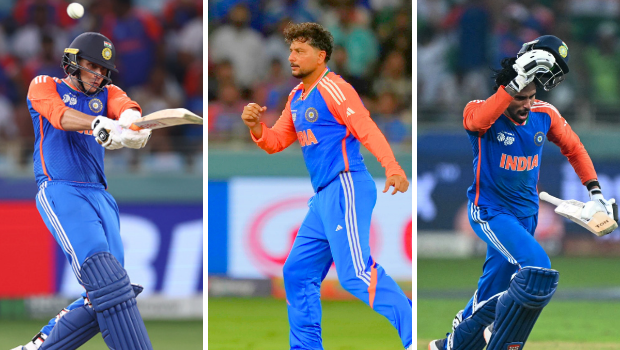A tournament India were expected to win was in the end won by them, not surprisingly, even though not once in the Asia Cup did the top-ranked T20I team hit top gear.
It speaks of the professionalism of this Indian unit under Suryakumar Yadav – even though the skipper’s batting continued to be problematic – as well as their knowledge of how to pick a winning squad given the slow conditions in Dubai. And, about the lack of a challenge to India.
Putting aside for a moment the needless controversy that Suryakumar ignited on September 14 when he refused to shake hands with Pakistan’s captain Salman Agha – this, after he twice shook hands with the Pakistan Cricket Board chairman Mohsin Naqvi before the tournament – this was an Asia Cup to remember for India. Reputations were created and enhanced, and the team now has its sights firmly set on next year’s T20 World Cup, to be co-hosted in India.
Yes, they were defending champions having won the 2023 edition when it was played in the ODI format, but they entered the competition having not played a T20I since early February. There were questions over SKY’s batting, the fitness of a couple players, and whether Jasprit Bumrah and Kuldeep Yadav could return to the T20I format for the first time since the 2024 T20 World Cup and hit the ground running.
As it panned out, India went through the Asia Cup unbeaten, the culmination being a riveting five-wicket victory in Sunday’s final to make it a hat-trick of victories over Pakistan in the tournament.
That they did so without playing anywhere near the perfect game underlines the belief and talent in this group. Their biggest win was a nine-wicket thrashing of hosts UAE, a match which was all over inside 18 overs, and there was a tie against Sri Lanka in the dead rubber before the final. India, again, held their nerve to win the Super Over.
Bangladesh pushed them, and Oman were at one stage in sight of an upset. Pakistan had chances in all three encounters to seriously put India under the pump, yet each time found a way to let them off the hook. You don’t give a team as professional as this one so many chances.
Abhishek Sharma, aged 25, entered his first multi-team event as an India player ranked No 1 in T20I cricket and ended it as Player of the Tournament with 314 runs at an average of 44.85 and with a strike-rate of 200. He failed in only the final, after dominating the Powerplay in six previous games courtesy scores of 61 off 31 balls, 75 off 37, 74 off 39, 38 from 15, 31 from 13 and a 16-ball 30. This was insane batting from a young opener just entering his first year of international cricket.
Kuldeep slotted back into the T20I setup and finished as the Asia Cup’s leading wicket-taker with 17 at an average of under ten, and in each match left his mark. His pairing with Varun Chakravarthy has proven a masterstroke for India, and indeed these two spinners – Varun is ranked No 1 in T20Is – stand to do wonders for India at the T20 World Cup next year.
Tilak Varma, unheralded in this batting lineup before the Asia Cup, proved himself a finisher with key innings of 30* versus Pakistan in the second match, 49* against Sri Lanka and then a career-defining unbeaten 69 from 53 balls in the final. It will take some time for those who did not watch Tilak in the final to fully comprehend the brilliance of that knock.
Shivam Dube was not everyone’s pick to play each match of the tournament, but he did well with a couple key innings, the pick of them his 22-ball 33 in the final, and handy wickets. Axar Patel had a decent run with ball but barring one innings, disappointed with the bat.
Bumrah’s return to T20Is after more than a year away was a mixed bag. He ended with seven wickets at 19.29 apiece and an economy rate of 7.43, bowled three superb yorkers but also went for the most runs he ever has in the Powerplay during the second game with Pakistan, and twice in the tournament Sahibzada Farhan proved that Bumrah can be attacked.
There were misfires too. Shubman Gill, back in the squad as vice-captain, having not played a T20I since July 2024, did not convince at all. A misfit at times in this format, Gill finished with an average of 21.16 and strike-rate of 151, but only twice in six dismissals did he make it out of the Powerplay. Sanju Samson had to adjust to a new role in the middle order, then twice found himself promoted again, and showed signs of struggling.
And lastly, the captain. Suryakumar entered the Asia Cup with a terrific captaincy record in T20Is but having not scored a fifty in eight innings. The struggles continued, with a best of 47 not out to ace the first chase against Pakistan, three single-digit dismissals and another score of 12. At 35, SKY looks a spent force in T20Is as a batsman for the shots which were once his go-to options are failing him.
His superb leadership record will ensure he stays as captain until the T20 World Cup, but if SKY’s batting keeps failing, don’t be surprised if the BCCI selectors look at a younger man for the role.


























